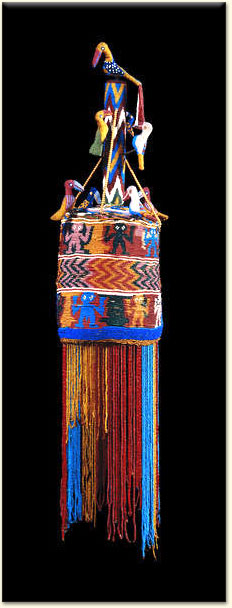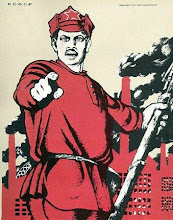I think it is important to remember Ayn Rand, who as recently as Paul Ryan choice to be Mitt Romney's Vice President was being mentioned as a brilliant young thing in economics and politics back in the day.
But all was not so brilliant...
It was the 20th Century, after all... the doorstep to the 21st.
I reprint this.
If you recall, Mr. Paul Ryan, the Republican Vice Presidential nominee in 2012, had a favorite philosopher, Ayn Rand.
Libertarians, some conservatives, Sean Hannity, and Paul Ryan extolled her philosophy of Objectivism.
Ms. Rand was very deep, indeed.
From Romancing The Stone-Cold Killer: Ayn Rand And William Hickman
http://michaelprescott.freeservers.com/romancing-the-stone-cold.html
In her journal circa 1928 Rand quoted the statement, "What is good for me is right," a credo attributed to a prominent figure of the day, William Edward Hickman. Her response was enthusiastic. "The best and strongest expression of a real man's psychology I have heard," she exulted. (Quoted in Ryan, citing Journals of Ayn Rand, pp. 21-22.)Marian Parker's dead and dismembered body was found soon after.
At the time, she was planning a novel that was to be titled The Little Street, the projected hero of which was named Danny Renahan.According to Rand scholar Chris Matthew Sciabarra, she deliberately modeled Renahan - intended to be her first sketch of her ideal man - after this same William Edward Hickman. Renahan, she enthuses in another journal entry, "is born with a wonderful, free, light consciousness -- [resulting from] the absolute lack of social instinct or herd feeling. He does not understand, because he has no organ for understanding, the necessity, meaning, or importance of other people ... Other people do not exist for him and he does not understand why they should." (Journals, pp. 27, 21-22; emphasis hers.)
"A wonderful, free, light consciousness" born of the utter absence of any understanding of "the necessity, meaning, or importance of other people." Obviously, Ayn Rand was most favorably impressed with Mr. Hickman. He was, at least at that stage of Rand's life, her kind of man.
So the question is, who exactly was he?
William Edward Hickman was one of the most famous men in America in 1928. But he came by his fame in a way that perhaps should have given pause to Ayn Rand before she decided that he was a "real man" worthy of enshrinement in her pantheon of fictional heroes.
You see, Hickman was a forger, an armed robber, a child kidnapper, and a multiple murderer.
Other than that, he was probably a swell guy.
In December of 1927, Hickman, nineteen years old, showed up at a Los Angeles public school and managed to get custody of a twelve-year-old girl, Marian (sometimes Marion) Parker.
Further on,
[...]Leopold and Loeb come to mind immediately.
Now here are some of Rand's notes on the fictional hero she was developing, with Hickman (or what he "suggested") as a model:
"Other people have no right, no hold, no interest or influence on him. And this is not affected or chosen -- it's inborn, absolute, it can't be changed, he has 'no organ' to be otherwise. In this respect, he has the true, innate psychology of a Superman. He can never realize and feel 'other people.' "
"He shows how impossible it is for a genuinely beautiful soul to succeed at present, for in all [aspects of] modern life, one has to be a hypocrite, to bend and tolerate. This boy wanted to command and smash away things and people he didn't approve of."
Apparently what Hickman suggested to Ayn Rand was "a genuinely beautiful soul." The soul of Marian Parker, the murdered girl, evidently did not suggest any comparably romantic notions to her.
As I mentioned in my previous post, there is a term for a person who has "no organ" by which to understand other human beings -- a person who "can never realize and feel 'other people.'" That word is sociopath. I mean this quite literally and not as a rhetorical flourish. A sociopath, by definition, is someone who lacks empathy and cannot conceive of other people as fully real. It is precisely because the sociopath objectifies and depersonalizes other human beings that he is able to inflict pain and death without remorse...
The story is ghastly, and we almost had a new national philosopher who reveled in such horrors.
Some have put it down to youthful infatuation with Nietzsche in European philosophy. There was a good deal of interest in the Nietzschean Superman in Europe at the time, just as there was in genetic purity in America under the aegis of the Euthanasia Society of America (which itself is a history worth reading).
Read it and vomit at how close we came to a new low.
(Note: I do not for one minute think Paul Ryan ever got further than watching the movie with Gary Cooper. Hannity probably did not get that far.)
--
you may also read a post in The Daily Kos,
http://www.dailykos.com/story/2011/04/19/968385/-Hero-or-Monster-Ayn-Rand-and-William-Hickman#
--


















No comments:
Post a Comment